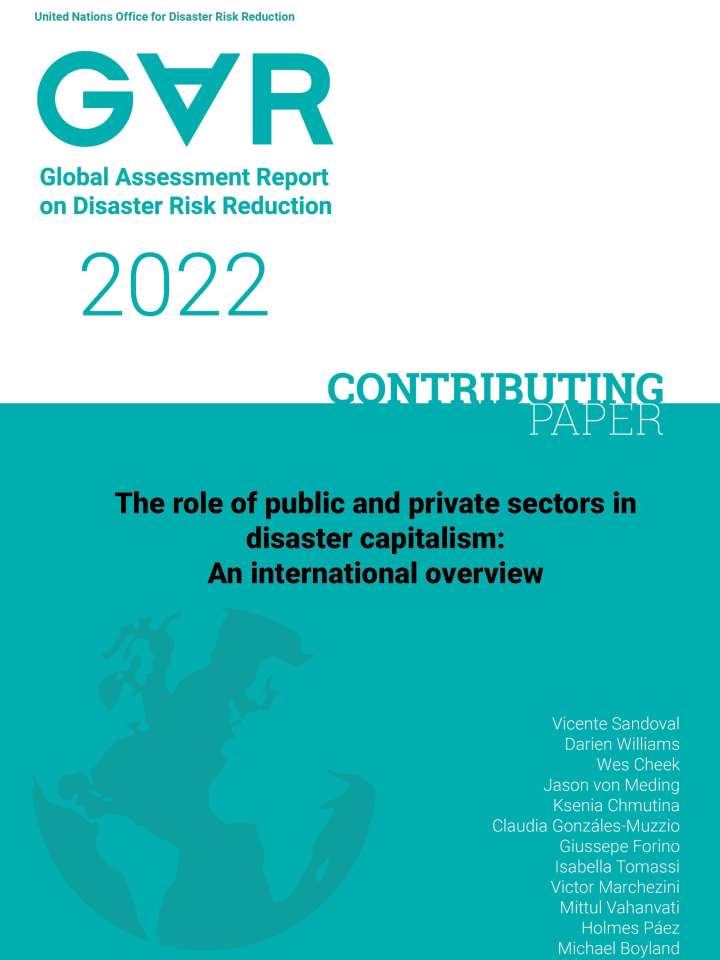The role of public and private sectors in disaster capitalism: An international overview
This contributing paper explores the role and the contribution of the public and private sectors in the (re)production and accumulation of disaster risks from a disaster capitalism optic, both in the academic literature and in the policy realm. This study responds to this gap and provides a preliminary international overview of the root causes, behaviours, and consequences of disaster capitalism, its contribution to disaster risk creation, and its role in the systemic nature of risk. The study analyses diverse ex-ante and ex-post experiences of disaster capitalism in Brazil, Chile, Colombia, India, Italy, Japan, United Kingdom, and the United States, within a timespan that goes from European colonial times until the current Covid-19 pandemic.
This study concludes that the relation of disaster capitalism with processes of disaster risk creation and role in the systemic nature of risk are of fundamental importance. The paper indicates that when social interests are not well protected or exposed to market turbulences, unscrupulous profiteers can take advantage or destroy them, regardless of the consequences for the majority of the people and the planet’s ecosystems. The researchers recommend transdisciplinarity and other approaches (such as action-research initiatives and design-thinking) that allow for a better understanding of the social dimension of the systemic nature of risk.
